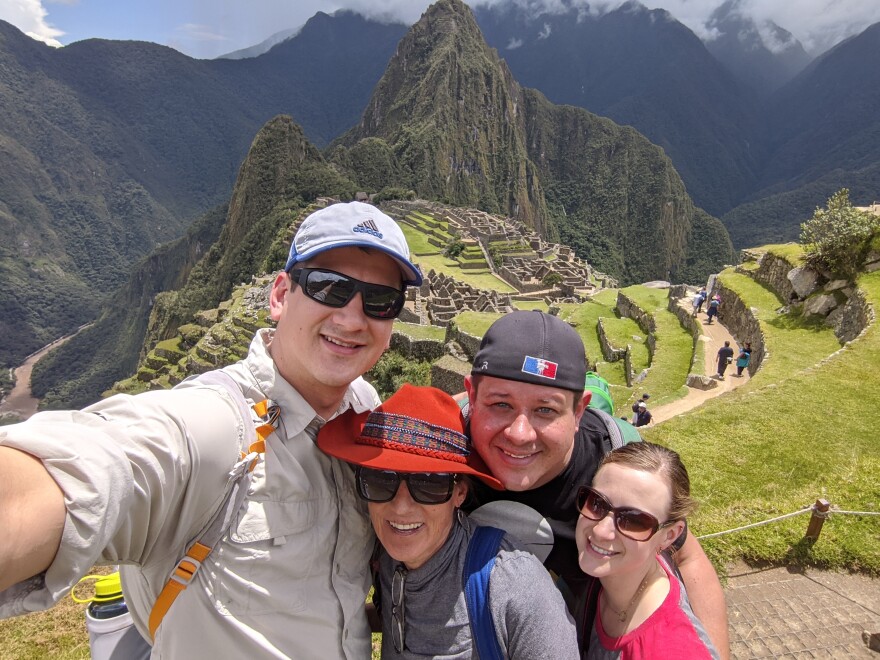Two dozen Iowans including a teacher from Ames are among more than 1,600 U.S. residents who have signed a spreadsheet indicating they are unable to get home from Peru because of COVID-19-related travel restrictions.
Ames High School science teacher Collin Reichert and his wife, Michelle, flew to Peru last Friday for a trip that was supposed to include celebrating a water project his dad had been working on for 18 months through a non-profit called Waters of Ccotataki. But the event was happening high in the mountains, in an isolated community with an older population. They skipped it amid fears they’d unknowingly transmit the virus.
Reichert’s dad came to their hotel in a town about 45 minutes away from the tourist center of Cuzco after the celebration. About an hour later, Reichert says they learned their flight home, scheduled for Thursday March 19, had been canceled because both Peru and the United States had implemented social distancing and begun to impose travel restrictions. They booked different flights, which were also then canceled.

There was little official information coming from the United States, but Reichert says he and his family reached out to members of Congress including Iowa Republican Sen. Joni Ernst and, because his father lives in New Mexico, Rep. Ben Ray Luján, D-New Mexico.
“They’ve been in touch with the Embassy in Peru and Avianca Airlines, which I think is out of Colombia, are selling tickets for flights to the U.S. between now and the 23rd, so we’re hoping to get on that,” Reichert says.
Those flights are only to Miami. For now, Reichert hasn’t worked out what happens after that. His dad, Stephen Reichert, says in their hotel in Peru they’ve been away from large crowds. But as they move into airports and major metro areas, he’s looking for U.S. officials to offer guidance on reducing the risk of transmission.
“I hope they plan to get 1,500 or more people out of here and into a safe environment back in the States, wherever that might be,” he said.
The Reicherts have spent a lot of time in Latin America, and Collin Reichert says understanding Spanish has helped make managing the situation easier for him. Other travelers who don’t speak Spanish have needed more help.

“I can watch the news and we can understand what’s happening,” he says, “and so we’re reaching out and trying to help translate for the people that we just met.”
The Reicherts say they have felt safe and comfortable in Peru, and their hotel has allowed them to stay and has continued to provide meals. Still, they remain eager to get home.



